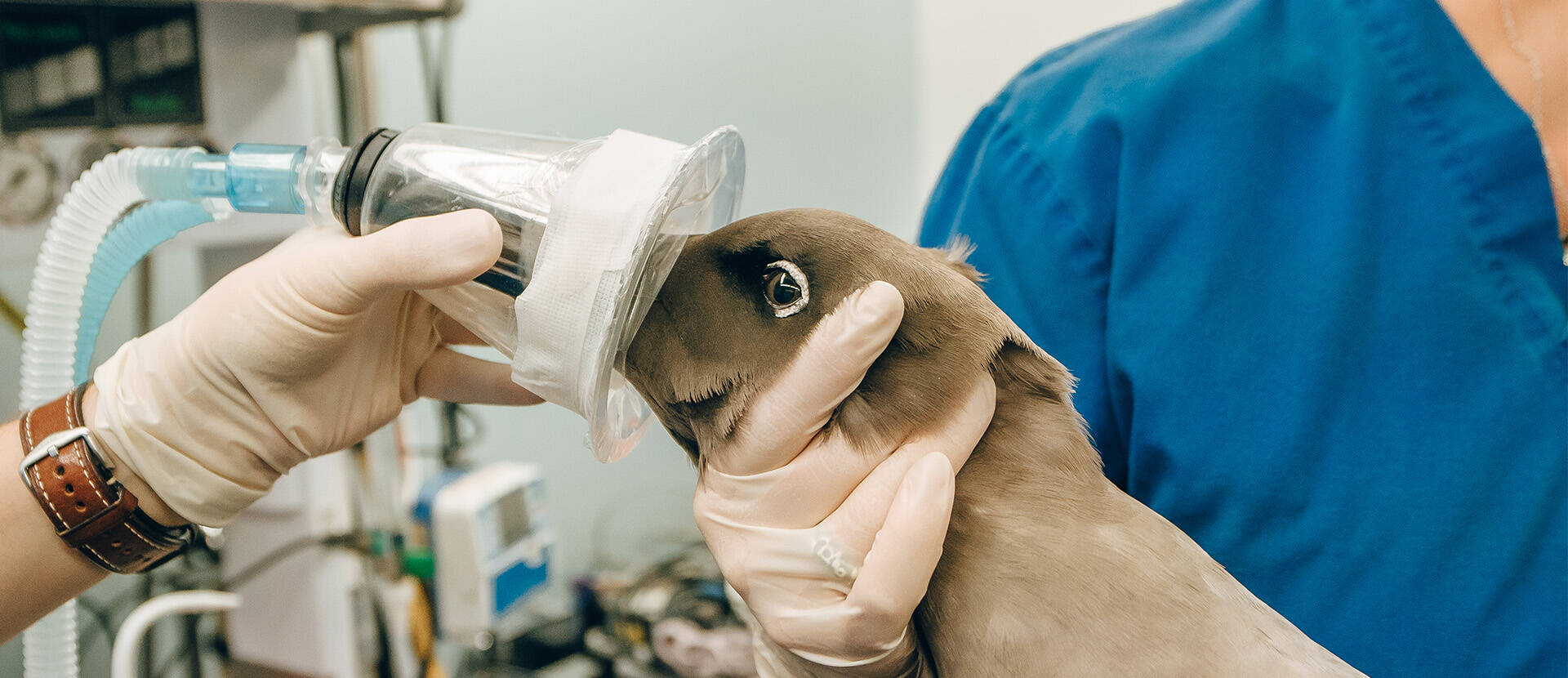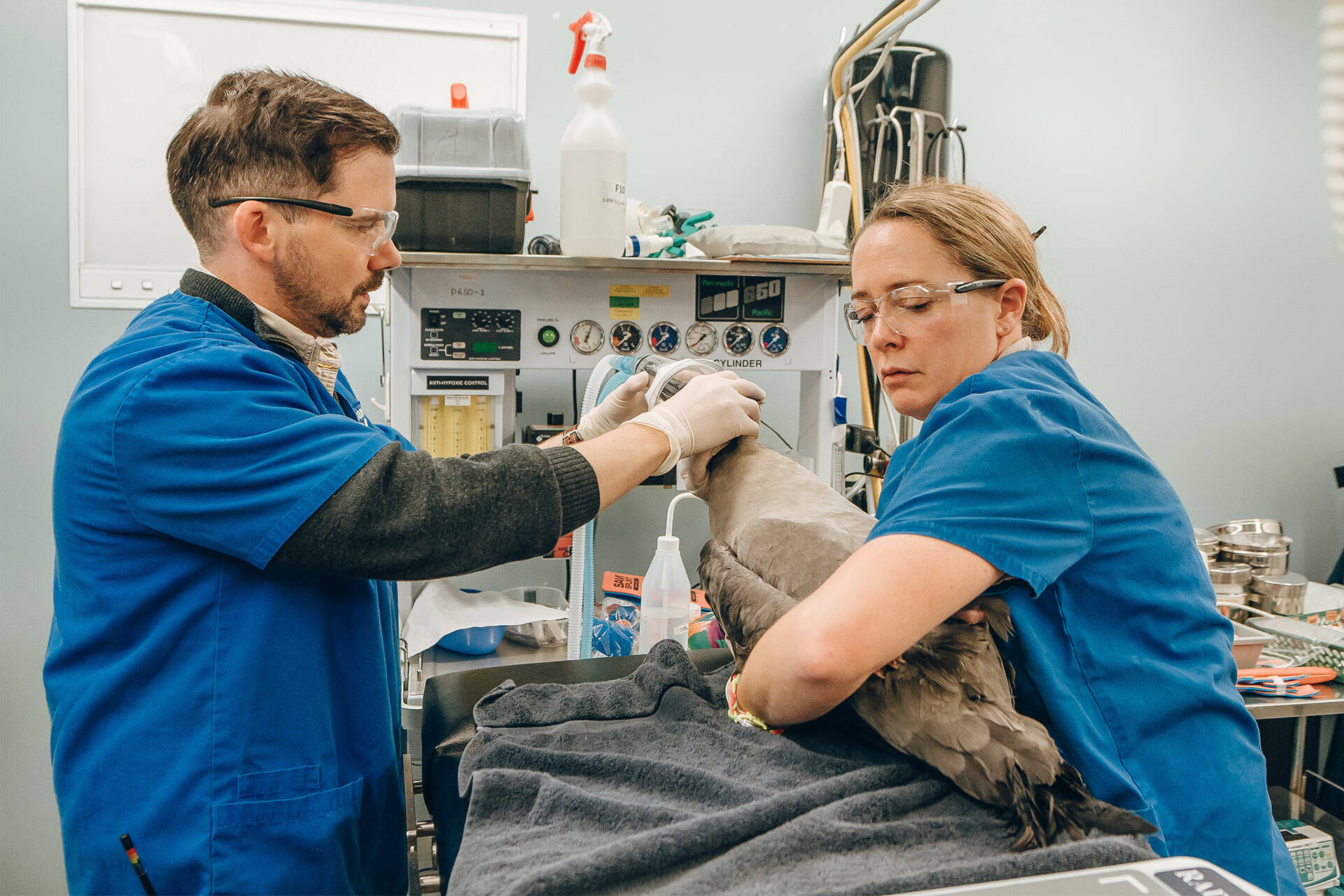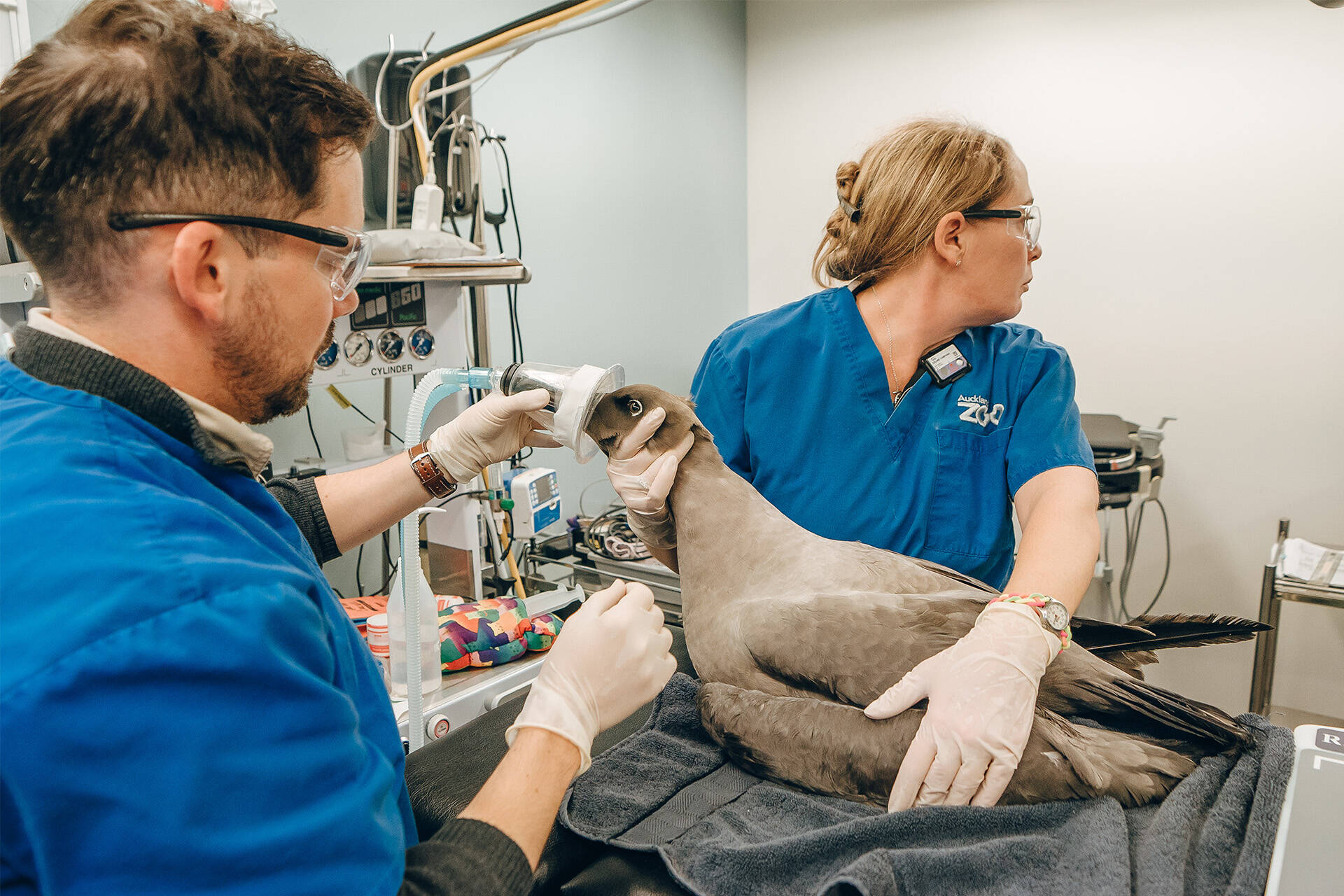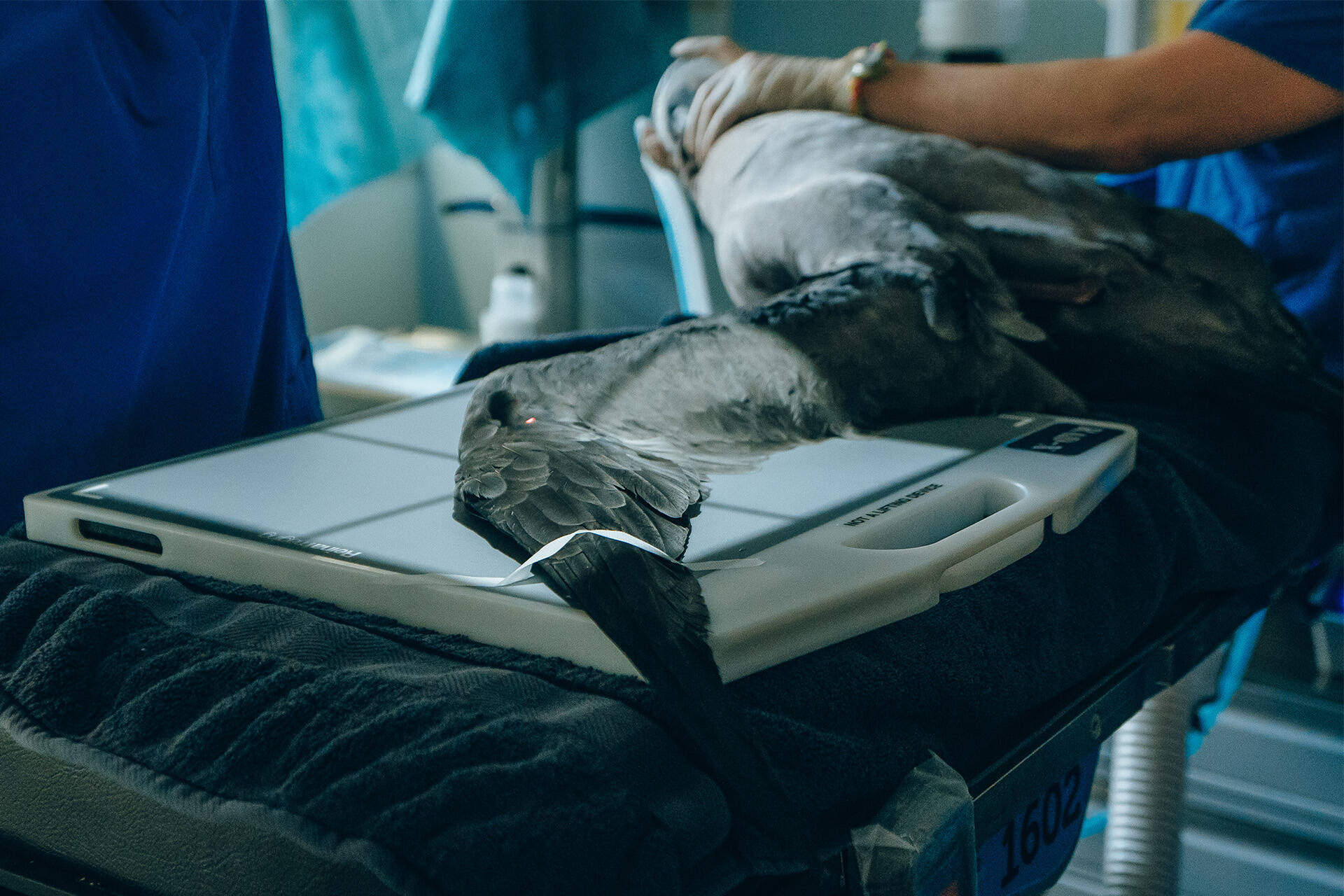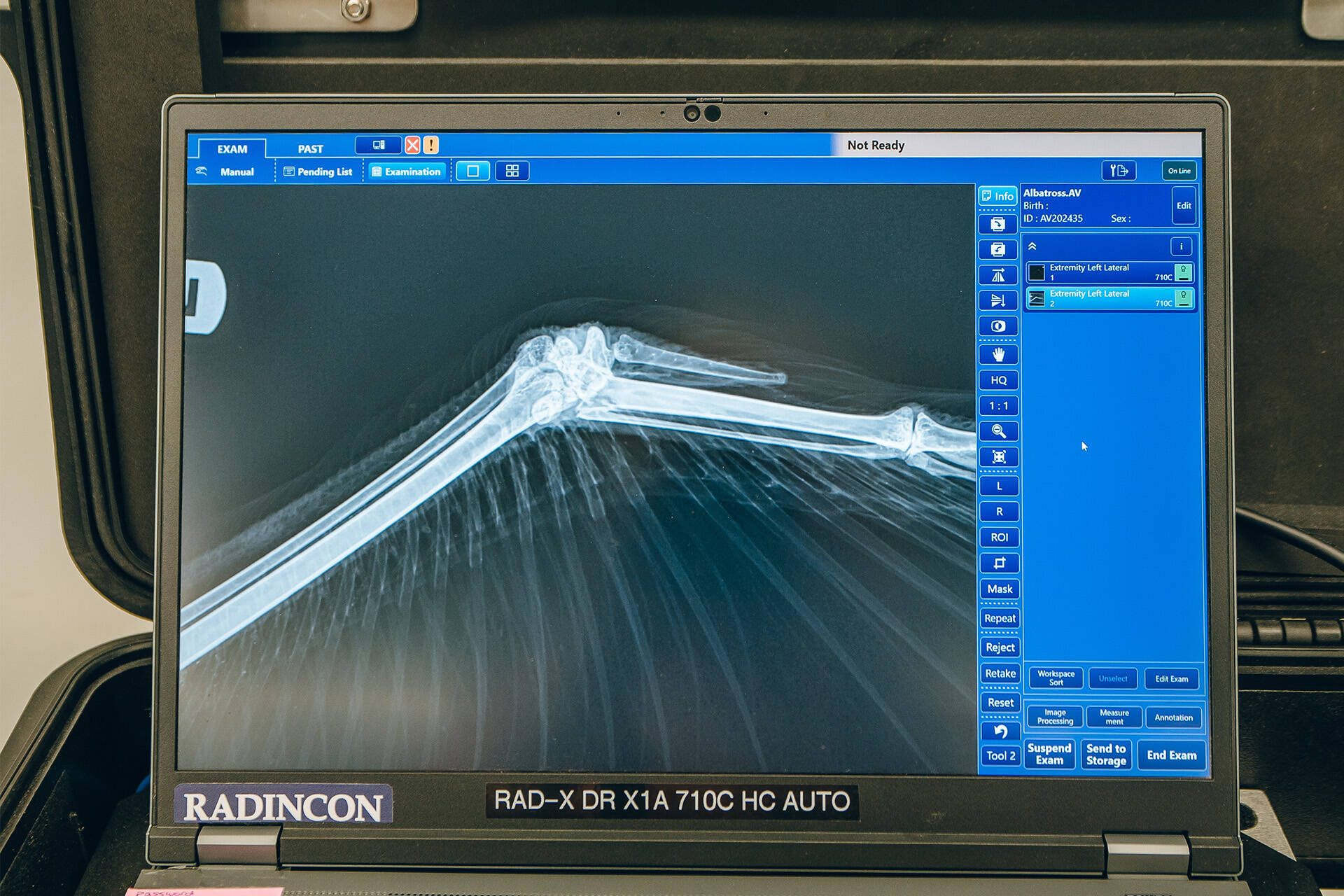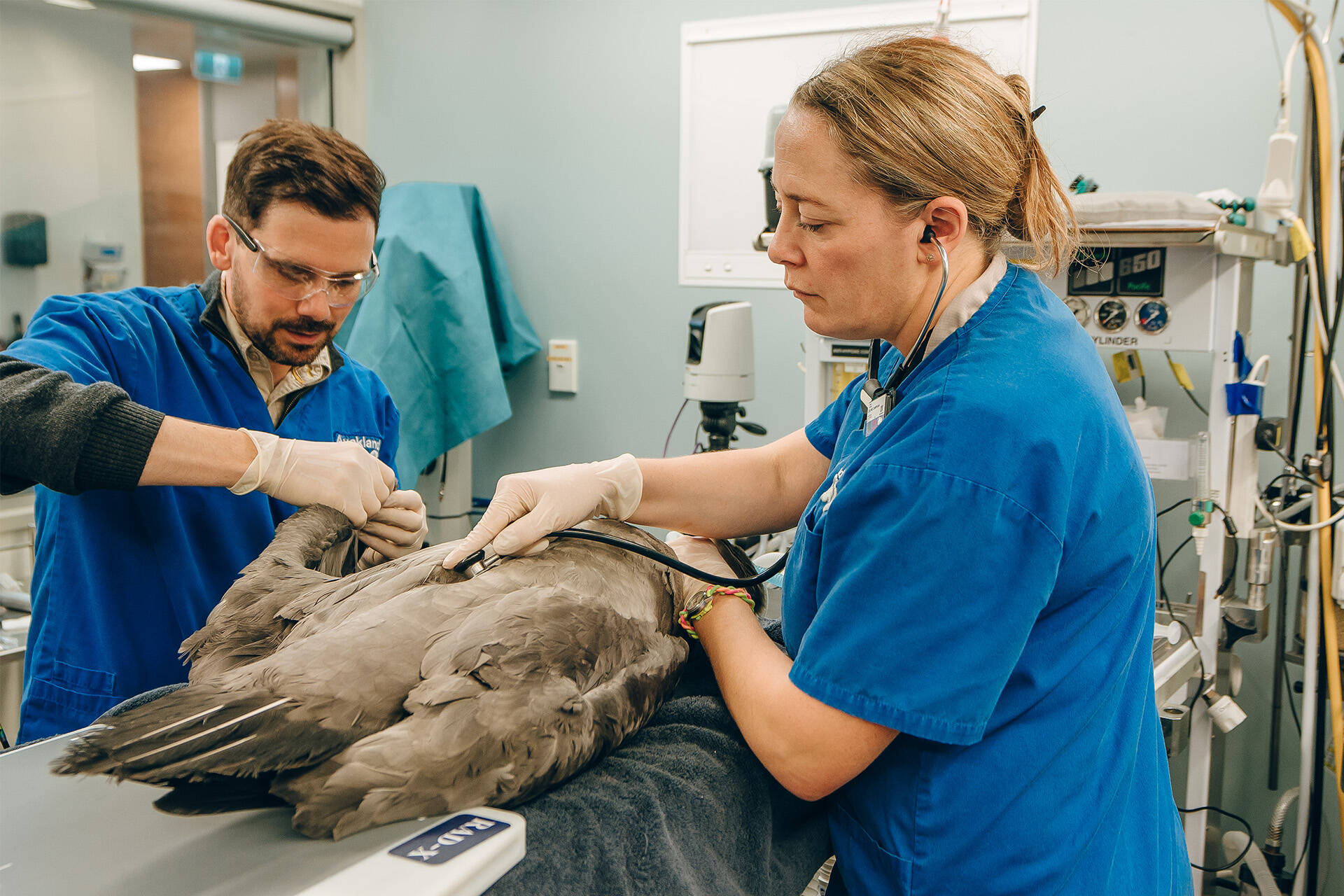This beautiful light-mantled sooty albatross was recently brought into our care in need of urgent attention.
A member of the public found the albatross sitting near the side of the road in Thames and took it to their local bird rescue. They then notified the Department of Conservation, and it was transferred to our veterinary hospital a couple of days later.
Albatrosses are the largest flying seabirds, and thirteen varieties breed in the New Zealand region – mostly on our off-shore islands – which is more than anywhere else in the world.
This albatross arrived with a dropped wing tip, and after examination, zoo vet Adam was concerned that there may have been serious damage to the carpal (wrist) joint. For this reason, our team elected to do a general anaesthetic immediately to better assess the injury. While we hoped it would be an injury that we could surgically repair, sadly X-rays showed a very serious fracture close to the carpal joint. This meant that the chances of healing with normal wing function was poor.


